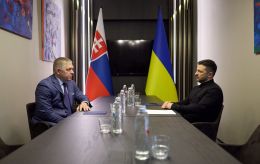Depends on NATO. Will Poland be able to help Ukraine fend off Russian missile attacks
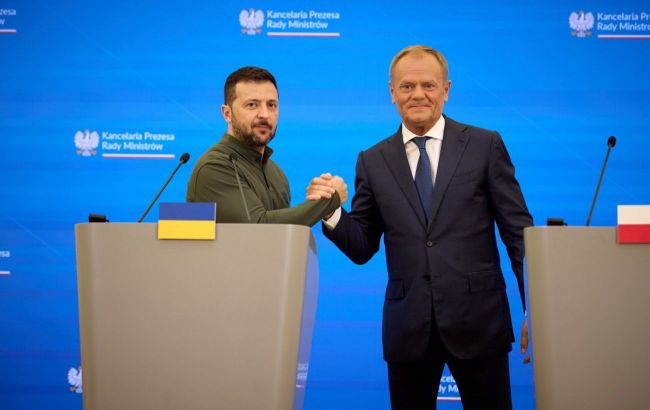 Photo: Volodymyr Zelenskyy and Donald Tusk signed an agreement on security guarantees for Ukraine (president.gov.ua)
Photo: Volodymyr Zelenskyy and Donald Tusk signed an agreement on security guarantees for Ukraine (president.gov.ua)
The idea of involving Poland in repelling Russian missile and drone strikes on Ukraine appears to be gaining momentum. This possibility is specifically outlined in a security agreement between the two countries, with Poland promising to raise the issue at the NATO level.
Details on how Poland could assist in intercepting missiles and whether specific decisions are imminent are discussed in the material by RBC-Ukraine.
Contents
- Poland will start shooting down missiles? What Zelenskyy and Tusk say
- From Patriot to F-16: What a 'closed sky' over Western Ukraine could look like
- Why involve NATO and should we expect a positive decision
Poland will start shooting down missiles? What Zelenskyy and Tusk say
On the way to the NATO summit in Washington, President Volodymyr Zelenskyy visited Poland. At a press conference with Prime Minister Donald Tusk, he announced the signing of a security agreement.
Among other things, it is about the development of a mechanism under which the Polish side will be able to shoot down Russian missiles in the sky over Ukraine.
"I am confident that our teams, the teams of the Ministry of Defense, will work together with our military to see how we can quickly implement this point of our agreement," he said.
The agreement specifies that Ukraine and Poland, together with partners, will study the feasibility of intercepting missiles and drones launched toward Poland, "following the necessary procedures agreed upon by the states and relevant organizations."
Tusk stated that Poland takes this issue seriously. According to him, Poland was the first to discuss with Ukraine the possibility of shooting down drones and missiles.
"We have been talking for a long time about an idea that was born in Poland - the idea of NATO responding to missile attacks when it comes to missiles heading towards Poland and still on Ukrainian territory... And it seems absolutely logical," he added.
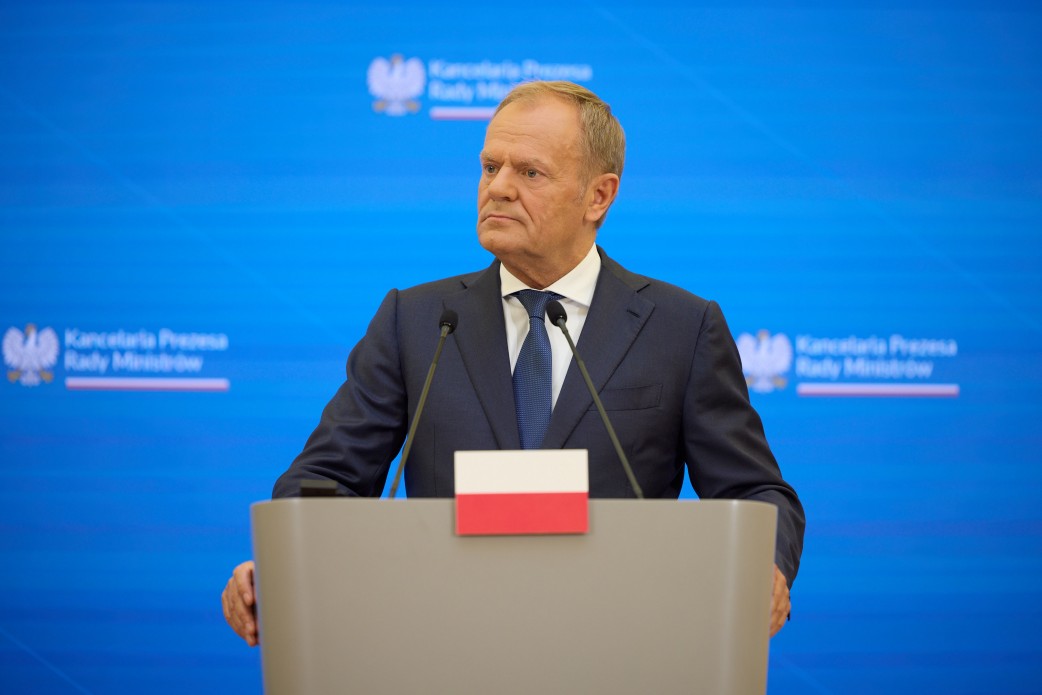
Photo: Donald Tusk suggests that Poland will start shooting down missiles over Ukraine (president.gov.ua)
He also emphasized the necessity of clear cooperation within the Alliance, as such actions require shared responsibility among allies. It is in the interests of Poland and Ukraine that everything concerning security is reinforced by international solidarity.
The current rhetoric demonstrates a shift in approaches. While previously during mass attacks Poland only raised its F-16s and reported another "tense night," now it seems intent on acting more decisively. According to Tusk, it won't be easy, so he and Polish President Andrzej Duda will involve NATO partners to determine how interception over Ukraine can be organized.
In the spring, former Defense Minister and security expert Janusz Onyszkiewicz suggested that at the NATO summit currently underway in Washington, allies could agree to deploy missile defense systems. However, political decisions and access to complete information about the situation in Ukrainian airspace are crucial prerequisites.
US State Department representative Matthew Miller acknowledged the topic would be discussed. At the very least, Poland has the ability to initiate it.
Oleksandr Musiienko, head of the Center for Military-Political Studies, considers the agreement with Poland just before the summit to be no coincidence.
"Within its framework, they will discuss how to improve the Ukrainian air defense system in one way or another. I think the agreement is part of the complex process to push certain countries towards readiness for specific actions. NATO should see that there is a coordinated position at least between Ukraine and Poland regarding readiness to shoot down Russian missiles. Hopefully, this will expedite the process," he told RBC-Ukraine.
The question remains how this can be implemented and to what depth within Ukrainian territory.
From Patriot to F-16: What a 'closed sky' over Western Ukraine could look like
Since 2022, official Kyiv has called for the establishment of a no-fly zone. However, international partners have hesitated, preferring instead to selectively strengthen air defense capabilities. Over the past two years, the potential has significantly grown, with air defense forces intercepting the majority of drones and missiles, but unfortunately, not all.
The search for other options continues. In May, Polish MFA spokesperson Paweł Wroński confirmed that Ukraine had requested assistance in intercepting missiles. According to him, discussions began following a March incident where a Russian missile spent 39 seconds in Polish airspace.
He also noted that the involvement of Polish air defense systems was being evaluated for potential consequences. This means experts need to agree on the conditions under which missiles can be shot down. There was particular emphasis on the impossibility of physically transporting anti-aircraft missile systems into Ukraine.
Around that time, discussions began within NATO. Poland, the UK, France, and Canada were reportedly in favor, while Germany and the USA were reported to be against, according to the German tabloid Bild.
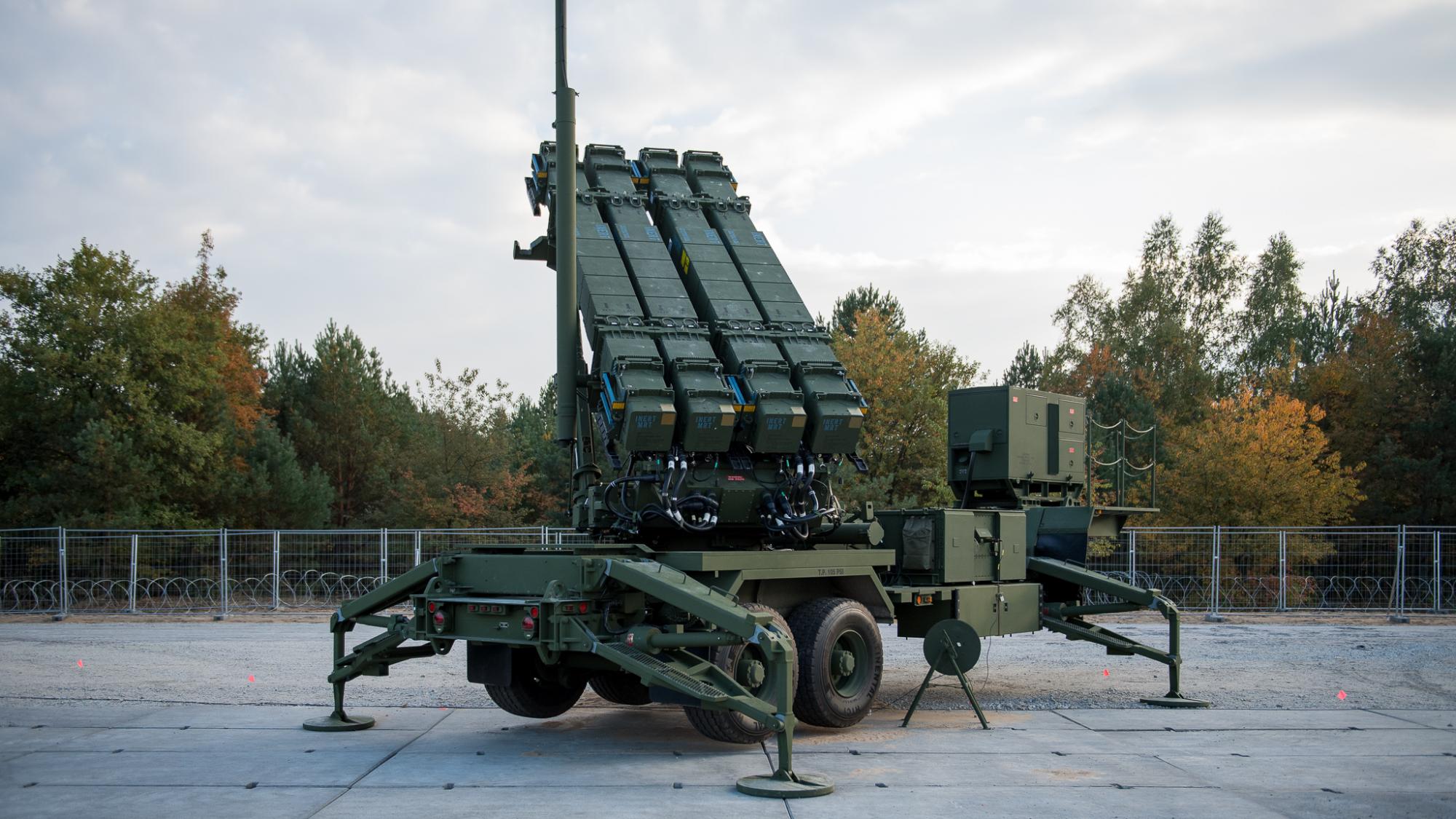
Photo: Poland could "close off" the western part of Ukraine by 50 km, but this would require deploying the Patriot system (wojsko-polskie.pl)
The official discussion does not specify which air defense systems would be involved. Military-political analyst from the Information Resistance group, Oleksandr Kovalenko, points out that Poland possesses long-range, medium-range, and short-range air defense systems.
"However, to what extent can they be used deep into Ukrainian territory? If it's within 10-20-30 km, it's not significant. To effectively counter threats in Ukrainian airspace, systems like the Patriot would need to operate at least 80 km away. Russian missiles rarely appear within 10-20 km of the border," he noted in an interview.
The phrase "towards Poland," he believes, may refer to Polish air defense systems engaging missiles approaching within 30-50 km of Ukraine's western border. Regarding cruise missiles like the Kh-101 and aeroballistic Kinzhals, long-range systems like the Patriot are not capable of intercepting them. Only medium and short-range complexes within 20 km are applicable.
"Sometimes, winged Kh-101s and aeroballistic Kinzhals'fly into Western Ukraine. However, I doubt Polish Patriots could effectively intercept them preemptively as Ukrainian air defenses over Kyiv do with Kinzhals. There are many nuances in the nomenclature of Polish air defense systems. Poland's capability to close the sky is not limitless," the expert stated.
Another issue is the high-level synchronization of actions because, without it, there's a risk of Ukrainian missiles shooting down Polish ones while Russian threats persist. Poland mainly utilizes Western systems, whereas Soviet-era complexes dominate Western Ukraine.
However, if both countries' leadership addresses the issue, discussions likely move towards practical implementation. Some stages may have already been agreed upon, possibly even involving joint exercises. "Most likely, preparations are underway," Kovalenko believes.
According to Musiienko, there are two effective ways to implement the mechanism. The most efficient would involve Polish multi-role F-16 fighters launching air-to-air missiles with a range of approximately 100 km.
"They could operate directly over Ukraine without issues if such an agreement arises. Ultimately, this is our path; we want to become a NATO member, which is perfectly normal for us. If Ukraine permits flights, Polish F-16s could patrol certain areas of Lviv and Volyn regions," he noted.
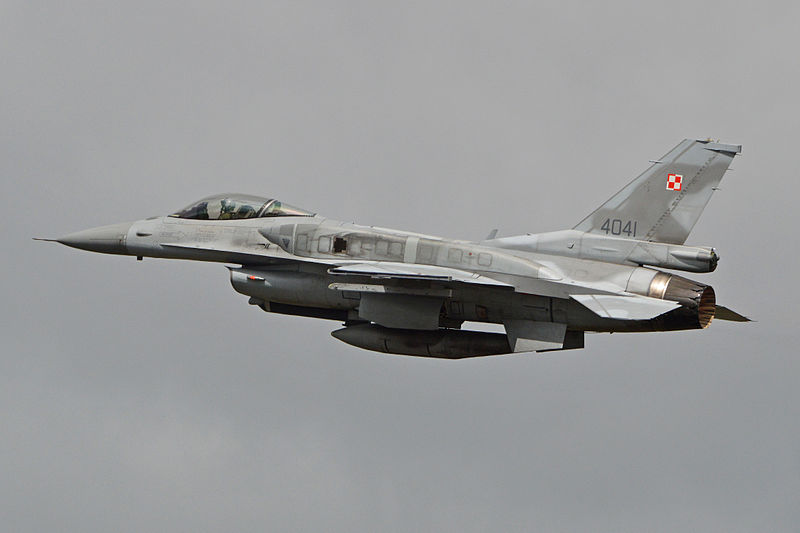
Photo: Polish F-16s in the skies of Ukraine could become the most effective defense against drones and cruise missiles (wikipedia.org)
The second method involves moving ground-based air defense systems. This would enable the creation of an unmanned zone in the western part of the country, ranging from 50 to 100 km depending on the type of air defense system. "There are two ways, I don't see any others," added the interlocutor.
Why involve NATO and should we expect a positive decision
Experts surveyed agree that Poland will not decide to shoot down drones and missiles over Ukraine without NATO's approval. This desire is related to discussing the initiative at the summit.
"From the very beginning, Poland has chosen a format of active consultations. I want to remind you that Warsaw previously turned to the Alliance for clarification on how to act during mass attacks, including when missiles fly into its territory. This is to avoid receiving any negative feedback from NATO later on. We understand that consultations can be ongoing. It's good that there is currently an agreement that supports the position of both countries," Musiienko noted.
The essence of the negotiations within NATO is also to provide air defense equipment not only for Ukraine but also for Poland. Ideally, Romania could be involved as well, given that Shaheds previously flew over Reni and Izmail through Romania, explains Oleksandr Kovalenko.
Moreover, Russia previously used Moldova's airspace to reach western regions. It is entirely possible that Romania could close a significant portion of Moldova's airspace with its air defense systems. There are many variations; the main thing is for partners to act, not just talk, he emphasized.
Regarding the summit, Musiienko is confident that the possibility of shooting down missiles over Ukraine will be discussed in Washington.
"The coming days will be decisive in terms of how feasible this can become. I hope for a decision in the near future. Just now, an argument has emerged against those who fear crossing Putin's red lines—yesterday, Russia committed a horrendous crime by targeting hospitals in Kyiv," he noted.
It should be noted that Russia has repeatedly stated that intercepting missiles over Ukraine by a third party would make it a participant in the conflict. It would view objects on its territory as "legitimate military targets." Thus, the threat of missile flights over Poland could serve as a deterrent for both the country itself and NATO.
However, this should not be a reason to restrict Poland in collective defense, believes Kovalenko.
"Otherwise, it would be an unprecedented disgrace. Poland does not attack anyone, and if there are any conditions regarding Article 5, Russia could use hybrid aggression to attack any other NATO country. I don't think this will happen. Let Moscow just try. It loves to draw red lines, a new one appearing each time," added the expert.
Sources: statements from Ukrainian President Volodymyr Zelenskyy, Polish Prime Minister Donald Tusk, US State Department spokesperson Matthew Miller, the text of the security agreement, comments from military experts Oleksandrr Musiienko and Oleksandr Kovalenko.
